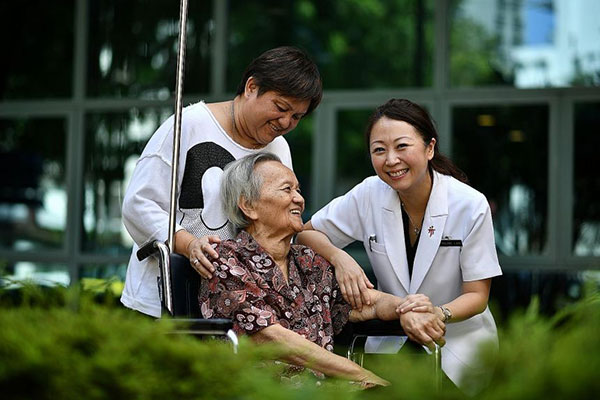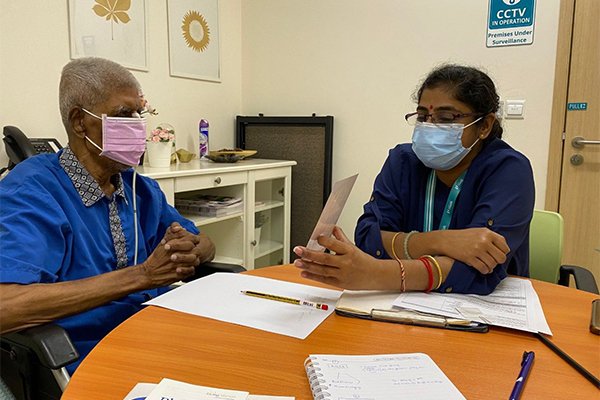By Tan Tock Seng Hospital
Mdm Wee wanted her family to be clear of her future care preferences and decided to make an Advance Care Plan with the support from her doctor at Tan Tock Seng Hospital. Advance Care Planning will enable her family and healthcare team to prepare for Mdm Wee’s future healthcare needs when she can no longer speak for herself.
Advance Care Planning (ACP) is a conversation about planning for medical care preferences that is aligned with one’s values, goals and beliefs. You can also designate a Nominated Healthcare Spokesperson, someone who understands you well and is willing to be your voice, and to be involved in discussion about your future care needs when you lose mental capacity.
To support patients like Mdm Wee, and to encourage a person-centred care culture, the ACP team of TTSH has been advocating for and facilitating ACP for patients at TTSH since 2012. To date, facilitators in the hospital have completed more than 7000 ACP sessions. This is in addition to promoting ACP through awareness talks in the community.
 Dr Adeline Lam, Clinical Lead of ACP, TTSH with Mdm Wee and her daughter.
Photo credit: Straits Times
Dr Adeline Lam, Clinical Lead of ACP, TTSH with Mdm Wee and her daughter.
Photo credit: Straits Times
In March 2021, the TTSH ACP team also embarked on a new endeavour:
Project RESPECT (Respecting
Preferences,
Empowering
Conversations
Together). This project aims to support nursing homes in building a sustainable culture of ACP, working towards increasing ACP uptake and awareness.
There are six nursing homes currently on-board in this collaboration, namely Lee Ah Mooi Old Age Home (Thomson), NTUC Healthcare (Geylang East) Nursing Home, Orange Valley Nursing Home (Balestier), St Luke’s Eldercare Residence @ Ang Mo Kio, St. Theresa’s Home, and Woodlands Care Home (Vanguard Healthcare).
Project RESPECT aims to bring these important and essential conversations upstream to the nursing homes, so that residents who still have decision making capacity have the opportunity to be heard. They can plan early with their families to receive care that is aligned with their preferences and values. So far, the ACP team has provided training to 36 ACP facilitators and 183 ACP advocates nominated by the nursing home partners to upscale their efforts.
 A resident at NTUC Health (Geylang East) discussing his ACP
Photo credit: NTUC Health
A resident at NTUC Health (Geylang East) discussing his ACP
Photo credit: NTUC Health
Ms Tho Pei Leng, a Medical Social Worker from NTUC (Geylang East) recalled, “My colleague, Selvi was conducting ACP (General) for our resident without any next-of-kin. The conversation was conducted in the resident's mother tongue, Tamil. It was a fruitful experience as we managed to fulfil his desire for daily prayers and religious needs in the nursing home. ACP enables these conversations to take place so that we can better discuss our residents’ preferences and wishes."
Many individuals who have discussed their ACP expressed relief at being able to maintain control over their medical care before they lose mental capacity. The discussions brought peace of mind by reducing anxiety and uncertainty for the person, and their loved ones. They are better prepared and conflicts during stressful time can be avoided. Furthermore, the medical team could use ACP as a guide to provide relevant, person-centred care and to honour the person’s ACP preferences. Let us empower our patients to have this meaningful and useful conversation as they journey on their River of Life, to ensure that they “Live well and Leave well”.
Advance care planning, start the conversation today and plan ahead for your future healthcare.
